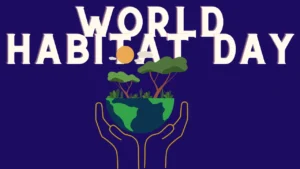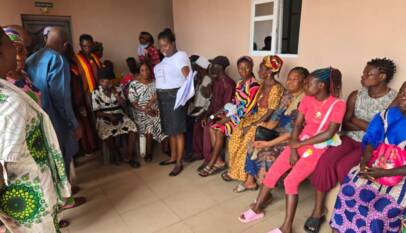World Habitat Day 2025: Thrivescape Initiative urges global response to urban challenges

As the world marks World Habitat Day 2025 with the theme “Urban Crisis Response,” Thrivescape Initiative has called for immediate, coordinated, and inclusive action to address the growing urban crisis in Nigeria.
Nigeria’s cities and communities are under immense pressure. Rapid population growth, congestion, slum expansion, and environmental degradation pose serious threats to human health, social stability, and economic productivity.
The Team Lead of Thrivescape Initiative, Tosin Aniramu, stated that: “Our urban areas are rapidly expanding with urban crises such as rising slums, building collapses, flooding, traffic gridlock, and declining public health. The challenges confronting Nigerian cities today are multi-dimensional.”
On the social front, the country faces overpopulation, overcrowding, housing shortages, building collapses, and severe health deficiencies. Millions of citizens live in substandard settlements plagued by poor sanitation, inadequate access to water, epileptic power supply, and ineffective waste disposal systems.
Urban poverty continues to deepen, leaving many young people vulnerable to unemployment, underemployment, relocation and social vices. On the environmental front, the threats are equally alarming. Flooding, desertification, waste mismanagement, and pollution are escalating, compounded by unplanned expansion and the effects of climate change.
Many city centers are decaying, while new urban fringes emerge without the necessary infrastructure, drainage, or planning oversight.
In response to these mounting challenges, Thrivescape Initiative is urging governments at all levels to adopt an integrated “Urban Crisis Management Framework” anchored on preparedness over response.
The organization emphasizes the need for urban planning agencies to strengthen land-use systems, enforce building codes and standards, and embed climate adaptation into every development plan.
It also calls on authorities to develop robust crisis management mechanisms that can minimize and prevent emergencies in communities.
This includes establishing fire alarm systems, providing clear Right of Way (RoW) signage, improving emergency communication channels, and promoting early-warning systems at the community level.
“Climate change is real, and embedding climate adaptation strategies into community development is non-negotiable,” Aniramu stressed.
Thrivescape further appeals to the Federal, State, and Local Governments to prioritize water, sanitation, housing, transport, and energy as the foundation of livable cities.
Infrastructure should not just be constructed to tick boxes, but rather for overall community development and sustainability.
The Initiative also reaffirmed that crisis management must be participatory, urging local communities to co-design and monitor implementation plans to ensure a stronger sense of ownership and accountability.
“Nigeria’s urban crisis is not beyond control,” Aniramu concluded. “With political will, community participation, and accountability, our cities can transition from chaos to resilience.”
Celebrations powers women entrepreneurs, boosts local economies with project advances
Chinedum Ukaegbu Celebrations, a brand rooted in helping people express their hearts throu…






